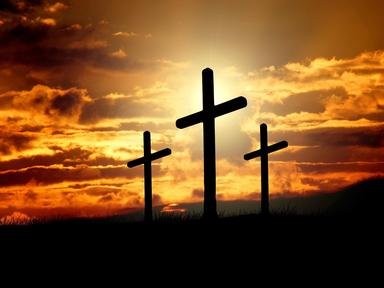Quiz Answer Key and Fun Facts
1. The story of this English lady's heroic efforts to save some hundred Chinese orphans from Japanese invaders was told in the film "The Inn of the Sixth Happiness", incongruously starring Ingrid Bergman. Who was she?
2. Which of the following missionaries was known as the "Missionary to the Cannibals"?
3. What was remarkable about "Operation Auca", an attempt by five U.S.A. missionaries which began in September 1955, to reach out to the Waorani people in the rainforest of Ecuador?
4. Missionaries are usually thought to go to a country solely to convert the locals to a different religion, but sometimes they promote understanding between cultures. Which Jesuit missionary arranged a mission to the Vatican from Japan by four young Christian Samurai in the 1580s?
5. Born in China in 1902, which Christian missionary is probably best remembered for winning an Olympic gold medal in 1924?
6. This heroic missionary was born Josef De Veuster in Tremelo, Belgium in 1840 and spent his last years caring for lepers on a Pacific Island. Under what name was he better known?
7. Which of the following is considered by many to be the very first Christian missionary?
8. In 1938, which former missionary to China became the first American woman to win the Nobel Prize for Literature?
9. Radio broadcasts have often been used to complement traditional missionary activities, but in which country did the first ever Christian missionary radio station, HCJB, begin broadcasting in 1931?
10. Charles Darwin came across a group of people when he was on the Beagle's second voyage exploring the South American coast, and found them so backward they might have been the "missing link". Where did these people live, who were later the targets of a disastrous missionary expedition?
Source: Author
davejacobs
This quiz was reviewed by FunTrivia editor
looney_tunes before going online.
Any errors found in FunTrivia content are routinely corrected through our feedback system.
